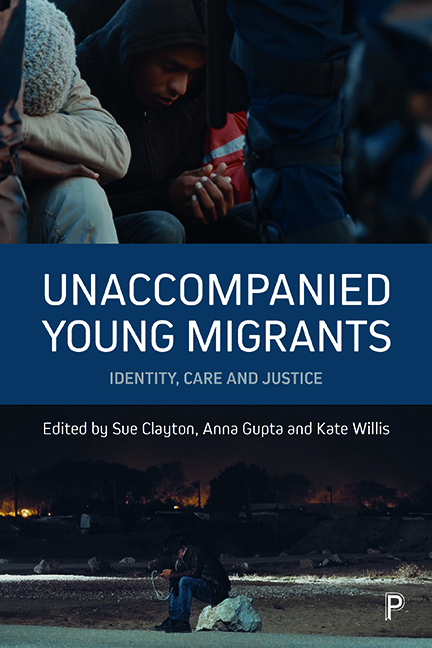seven - ‘Durable solutions’ when turning 18
Published online by Cambridge University Press: 21 April 2022
Summary
Durable solutions for unaccompanied asylum-seeking Children
This chapter considers the life options open to unaccompanied asylum-seeking children (UASC) who have sought asylum alone and have reached the legal definition of adulthood in their country of residence. These options ideally represent the potential and possible futures that any young person, no matter their immigration status, could hope for as they launch themselves into the adult world. These futures should reflect a young person's confidence in themselves and in their potential to achieve, participate and be valued in the world. Unfortunately, however, most young people reaching adulthood after a childhood as a migrant or an asylum-seeking child will have a limited range of opportunities open to them. Professional and volunteer workers have a role in supporting unaccompanied asylum-seeking children into adulthood, but contested expectations of possible futures prevents consensus on what these futures might be.
With their status of asylum seekers forced into migration, it is most likely that social care providers, immigration enforcement bodies and other statutory agencies will see young people's futures delineated by the United Nations High Commission for Refugees’ (UNHCR) three ‘durable solutions’ – resettlement, local integration or repatriation – all of which tend to constrain outcomes for young people rather than promote them. The assumption that asylum-seeking children will eventually return to their country of origin (through repatriation) is accepted as self-evident by many but challenged by other advocates who seek to support young people to integrate into the countries they have settled in.
Beyond the UNHCR's technical definitions of ‘durable solutions’, this chapter seeks to consider how independent migrant young people can prepare and be prepared for the variable realities they meet on reaching adulthood. It considers the many assumptions popularly made about young migrants and seeks ways to promote the kind of ‘ontological security’ (Giddens, 1991; Chase, 2013; McMichael et al, 2016) that children need to grow into resilient and rounded adults with positive and contributory futures ahead of them. As discussed in Chapters Two and Three and in the following international chapters, many young migrants in Europe, North America and Australia will be granted a form of international protection that can lead to permanent settlement in the country where they claimed asylum, or – in the language of the durable solutions – local integration.
- Type
- Chapter
- Information
- Unaccompanied Young MigrantsIdentity, Care and Justice, pp. 187 - 208Publisher: Bristol University PressPrint publication year: 2019



